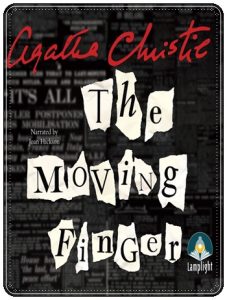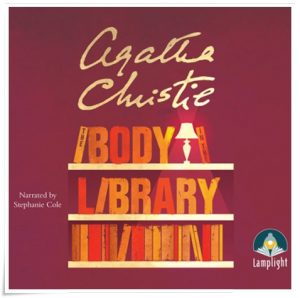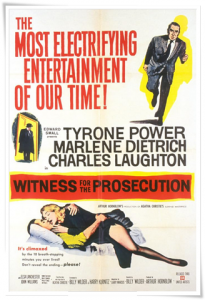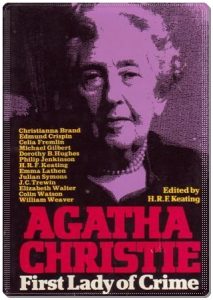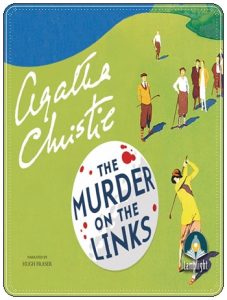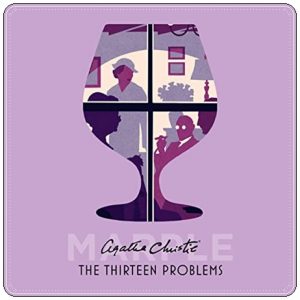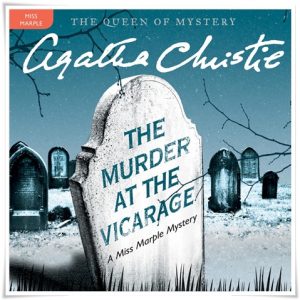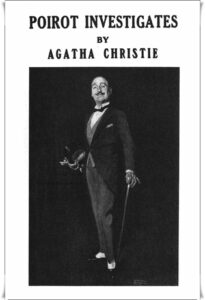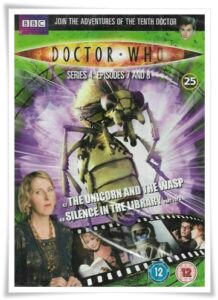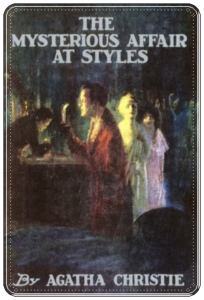The Moving Finger
by Agatha Christie (Dodd, Mead and Company, 1942)
audiobook read by Joan Hickson (Lamplight, 2015)
Joan Hickson (TV’s Miss Marple) would seem the perfect audiobook narrator… except that Miss Marple is absent for the first three-quarters and barely present for the remainder, the viewpoint character being a young man. Instead we’re given banal set-up plus egregious instalove.

